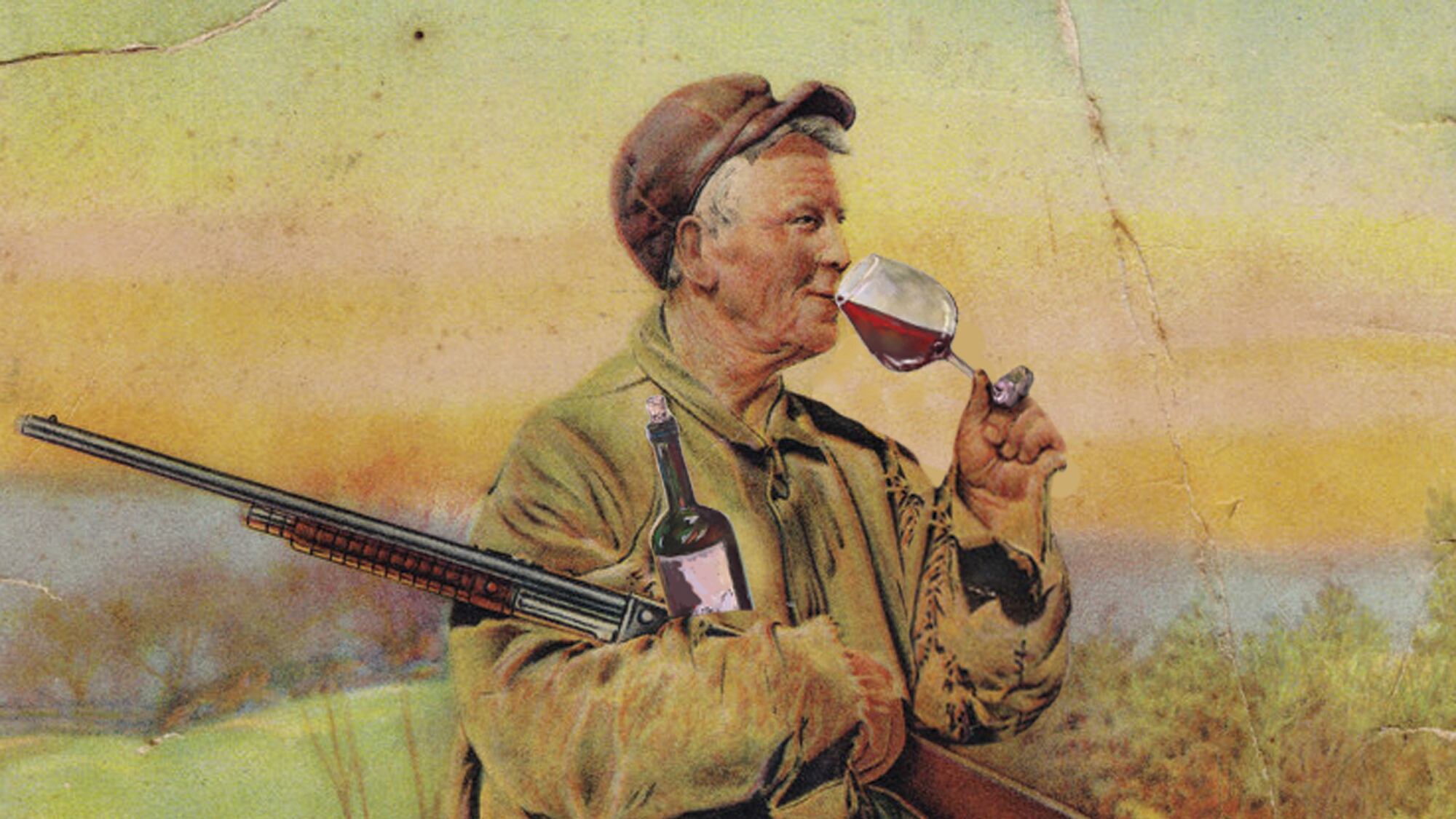By Michael Alberty
Recently, I received a box of wine from the National Rifle Association. In a gesture either reckless or classy, the NRA apparently sells alcohol to pair with guns.
I came to the NRA Wine Club by accident. In the wake of the Parkland school shooting, friends sent emails urging me to boycott the NRA's corporate sponsors. I recognized most companies—from Delta Airlines to Federal Express—but I was unfamiliar with a California outfit by the name of Vinesse. A quick Google search revealed they run the official NRA Wine Club.
I went to the NRA Wine Club website, where the sign-up page asked for all relevant information, including my NRA membership number. Oops. I forgot I wasn't a member.
I wasn't about to join the NRA—even for a good story—so this was a problem. Then I noticed the asterisk signifying this step was optional. Luckily for me, the NRA wants all Americans to be allowed to buy their wines, even the ones without guns.
Warmed by their inclusivity, I created my password: charltonhestonsucks.
I thought I was all set, but the next day I attempted to log into my account only to have my password denied. After several failed attempts, I created a new password. Charltonhestonblows worked like a charm.
The next day my password failed again. This time, I changed it to charltonhestoncolddeadhands, and I've had no problems since. Password editing for the NRA Wine Club must be a fun internship.
I've been in the wine business for 20 years, but when my introductory box of four wines arrived via UPS—the NRA doesn't use their sponsor, Federal Express—I didn't recognize the wine labels. That's because this kind of wine doesn't come from a winery you visit. It's manufactured in giant warehouses and sold by the tanker truck.
To test the palate of America's most prominent gun lobby, we decided to conduct a mostly blind tasting. I asked two local winemakers to sit in without telling them the wines came from the NRA, hiding the bottles in paper bags. The only thing I revealed was the grape(s) used to make the wine. After I revealed the source of the wine, they asked to remain anonymous.
The wines are scored using a scale of one to five bullets, with five indicating "highly recommended."

2015 "Lodi" Chardonnay from Iron Rock Cellars
![]()
This chardonnay tasted like someone took cashews they found between the sofa cushions and threw them into a blender with cotton candy, quinine water, blood meal and cocoa butter. If you enjoy the taste of rancid butter, meet your new house wine. The winemakers said they'd pay someone to take it away.
Winemaker tasting notes: "This doesn't seem right or good. If it were mine, I'd wonder if I had added enough sulfur. Or any sulfur." "It smells a little 'poopy,' like when compost bins go bad."
2015 "California" Merlot from Willow Springs Cellars

This wine wasn't undrinkable, like the chardonnay, but its combination of red bell peppers and red apple skins was just odd. There wasn't much tannic structure left, and the fruit was fading, giving way to flavors like old leather and mushrooms.
Wilson Phillips (probably no relation to the singers), the NRA's treasurer, mentioned in the club's introductory letter, "The wines were packaged at their peak so don't hesitate to enjoy them right away." That's code for "drink them right away before they die in your cupboard." The strange tomato flavor made us crave salsa.
Winemaker tasting notes: "Not very pleasurable." A "reception wine" that would be innocuous if not for its distinctive "tomato leaf flavor."

2015 "California" Cabernet Sauvignon from Ashfield Cellars
![]()
I liked this better, but that's like saying Bruce Willis is a better singer than Steven Seagal. The wine smells like licorice, dark cherries and pipe tobacco—but after I took my first sip, its green, unripe notes overwhelmed the red fruit flavors.
Both winemakers agreed it had vegetal qualities, probably due to overcropping in the vineyard. This wine had no buyers.
Winemaker tasting notes: "Watery." " Highly processed." "Paint-by-numbers."
2016 "Clarksburg" Chenin Blanc from Quail Hollow
![]()
Finally, a winner in the NRA Wine Club. Nighttime fog and maritime breezes from San Francisco Bay apparently keep these grapes nice and cool at night, which probably explains this wine's freshness and mouthwatering acidity. Scents of honeysuckle and lemon blossoms drift up from the glass while flavors like lemon sorbet and Granny Smith apples fill the palate.
Winemakers A and B enjoyed the wine, both guessing it was an Old World wine, possibly from France's Loire Valley. Both agreed they would pay up to $25.
Winemaker tasting notes: "Slightly unripe fruit qualities." "Candied papaya or a slightly green pineapple."
Takeaway: This set of wines was an introductory offer costing $29.99, plus $10 for shipping. We found one wine we liked, two duds and one disaster. And the one bottle we would recommend isn't worth $39.99, so if you need to support the NRA, do yourself a favor and skip the wines. Better yet, do everybody a favor and ask someone at your local bottle shop to help you find a quaffable $15 bottle.
Michael Alberty is a Portland wine writer and former wine shop owner who will soon be writing a check to the Brady Campaign to End Gun Violence to ease his conscience.
